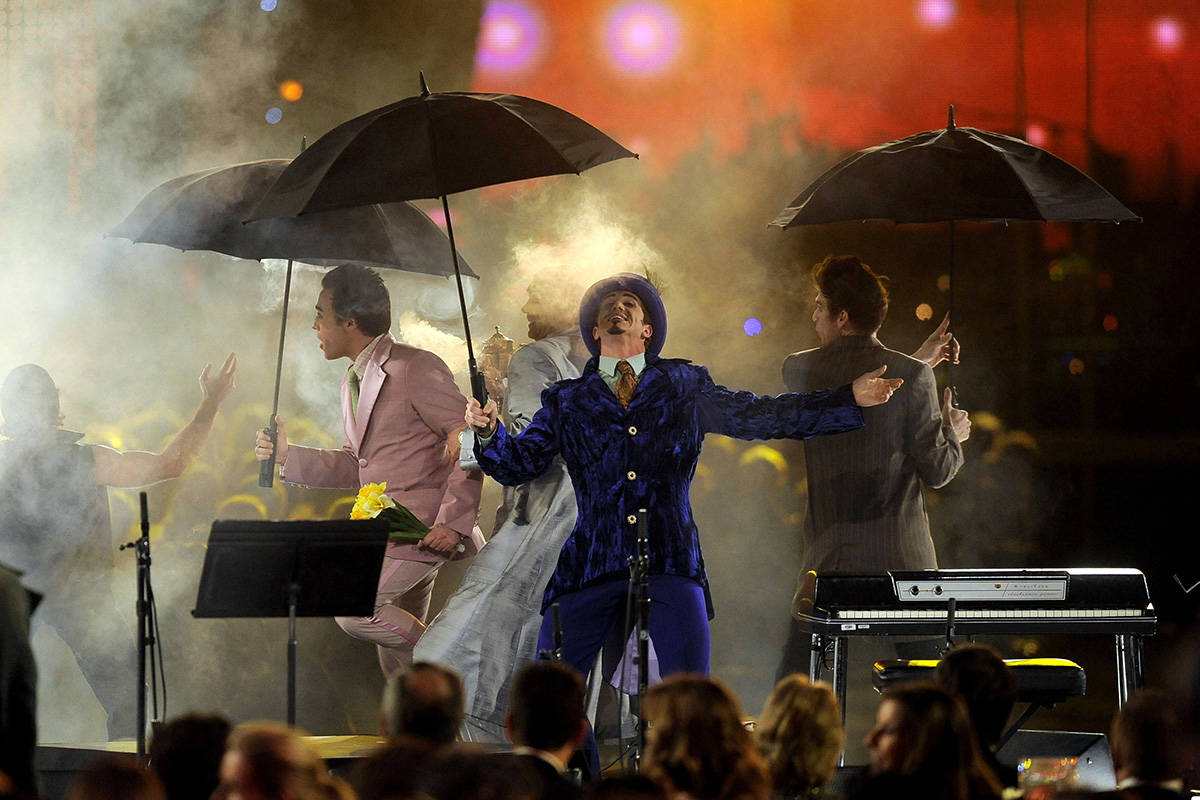Cirque du Soleil loses 95 percent of worldwide workforce

In the past week, Cirque du Soleil’s CEO has closed more than 40 shows worldwide and laid off nearly 4,700 employees, including more than 1,300 in Las Vegas.
But Daniel Lamarre, on what he called “the most difficult day in Cirque history,” said he is determined to stabilize the company. Lamarre, who joined Cirque in 2001, insists it will reopen all of its productions, including the six on the Strip. The first identifiable timeline is inside of two months.
“I feel I am on a mission right now, to really make sure we go through this correctly and to bring back our people on stage as soon as possible,” Lamarre said in a phone interview Thursday from Montreal, where earlier he had announced 95 percent of Cirque employees around the world would be laid off, effective immediately. “In the grand scheme of things, about 10 days ago, we had 44 shows going around the world. Suddenly, we went to zero shows and zero revenue.”
Nonetheless, Lamarre said, “My priority right now is to fight the fight and make sure I protect every single job for the mid- and long term.”
Lamarre said “the breaking point for Cirque” occurred Saturday, when the company shut down its six resident shows in Las Vegas: “O” at Bellagio, “Ka” at the MGM Grand, “Love” at The Mirage, “Mystere” at Treasure Island, “Zumanity” at New York-New York and “Michael Jackson One” at Mandalay Bay.
By Wednesday, all Las Vegas hotel-casinos had ceased operations for 30 days, acting on Gov. Steve Sisolak’s directive for all nonessential businesses in Las Vegas to close. That series of events left the city, and its predominant entertainment company, in uncharted territory.
But MGM Resorts International has set May 12 as the date to restart its Las Vegas resident productions, including five Cirque productions. Asked if his company could actually return to the stage in that time frame, Lamarre said, “Yes, for sure, we could have our shows and our artists in shape by then.”
Lamarre also said the mid-May relaunch can be viewed as realistic, despite escalating concerns that the coronavirus pandemic could put the country in a long-term lockdown. The CEO said he is especially encouraged by the results in China, where the first Cirque show to close because of coronavirus fears, “X — Land of Fantasy” in Hangzhou, is set to relaunch April 24.
“If you look at what has happened in China, where things are stabilizing, right now our first show to return is our show there,” Lamarre said. “If we are able to follow a similar pattern in the U.S. and control the situation, then May is not unrealistic in Las Vegas.”
There is a crucial divide among those working on Cirque productions in Las Vegas. A total of 749 are artists who have been employed directly by Cirque. An additional 600 are technicians who have worked for MGM Resorts.
The MGM Resorts workers have been provided two weeks’ pay and full benefits through June 30 under that company’s compensation package. Cirque artists are not being paid by the company, other than cashing out their paid time off hours. But they do have the option of filing for unemployment pay, will receive full insurance benefits for six months and have access to a company employee support program for mental health care.
Cirque performers in Las Vegas are learning to accept this sudden, new reality. R.J. Owens, who has portrayed Bebe François in “Mystere” since 2013, said his frustration level is “very high.”
“You know, I can say that I’m angry and upset and yada-yada, but it’s a business and I get it,” Owens said in a phone chat Thursday. “They did what was right for them to do. I understand. I might not agree, but I understand that wrapping people in Saran Wrap to be in the show is not the answer.”
Owens added, “This is how they are going to try rebuilding the brand with the help of the hotels we are in.”
Lamarre said he was faced with difficult, even impossible, decisions about where to provide financial support. The company decided to fund insurance.
“Frankly, I think from an employee perspective, it is a better scenario,” he said. “Because the employee will not only have the insurance covered but also the possibility of receiving a paycheck from the unemployment program. That’s why I went in that direction.”
Cirque also covered travel costs for more than 2,000 touring artists returning to their home cities. The company also provided $2.6 million for single $2,000 paychecks for about 1,300 employees who are not U.S. or Canadian residents and don’t have access to government-subsidized unemployment compensation.
As Lamarre said, “This was to help them until we are ready to come back and present our shows.”
Lamarre said he is digging in for the fight of Cirque’s life.
“I hope this will not last long,” he said in a classic understatement. “When the time comes, we have to be able to be afloat. We have to be ready to bring them back to their home theaters, and restart the machine.”
John Katsilometes’ column runs daily in the A section. His PodKats podcast can be found at reviewjournal.com/podcasts. Contact him at jkatsilometes@reviewjournal.com. Follow @johnnykats on Twitter, @JohnnyKats1 on Instagram.